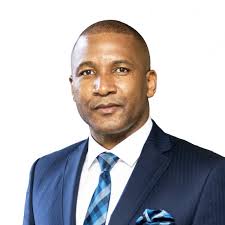Duma Gideon Boko, a formidable figure in Botswana’s political landscape, has finally struck gold with his third shot at the right to occupy State House in Gaborone.
His party’s historic victory in the recent elections not only marks a turning point for his Umbrella for Democratic Change (UDC) but also catapults Boko from the ranks of opposition to the presidency of this southern African nation.
Born on 31 December 1969, Boko has been the leader of the UDC coalition since 2012 and has played a vital role in shaping the country’s political landscape.
Boko studied law at the University of Botswana from 1987 to 1992, during which time he served on the Student Representative Council.
Graduating in 1993, he furthered his education at Harvard Law School, obtaining a Master of Laws degree.
After returning to Botswana, he taught law at UB until 2003, all the while managing his own law firm.
Boko entered politics by becoming the leader of the Botswana National Front (BNF) in 2010. His leadership was initially challenged due to his past affiliation with the National Democratic Front following the BNF’s earlier split in 2000.
However, he successfully defended his position in court and helped to revitalise a party that had been in decline under his predecessor, Otsweletse Moupo.
Under Boko’s leadership, the BNF united with the Botswana Movement for Democracy and the Botswana Peoples Party to form the UDC.
In the 2014 general elections, he led the alliance to a second-place finish, securing 17 parliamentary seats against the then ruling Botswana Democratic Party (BDP), which won 37 seats. This success positioned him as the Leader of the Opposition.
In the subsequent 2019 elections, Boko faced a setback, losing to a BDP candidate in the Gaborone Bonnington North constituency, which resulted in the loss of his opposition leadership role in parliament.
Despite challenges – including the departure of some coalition partners – the UDC managed to achieve a majority in elections held on October 30.
According to results published by the Independent Electoral Commission (IEC) of Botswana, UDC had, as of mid-afternoon on Friday, secured 31 seats, granting it the right to appoint the attorney-general and the president.
With the UDC’s victory in the latest general elections, Boko looks set to be elected as president of Botswana when the National Assembly sits.
Outgoing President Mokgweetsi Masisi conceded defeat earlier on Friday, marking a significant political shift in the country.
The defeat of the BDP, which has ruled since Botswana’s independence in 1966, signals a notable change in the political dynamics of southern Africa where many countries have been governed by former liberation movements.
Boko’s rise to the presidency may inspire similar movements across the region, challenging entrenched political parties and potentially altering the trajectory of governance and democracy in southern Africa.
JN/APA


